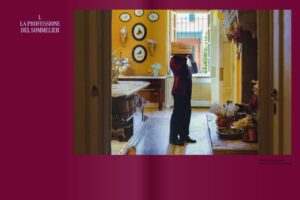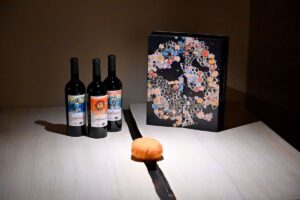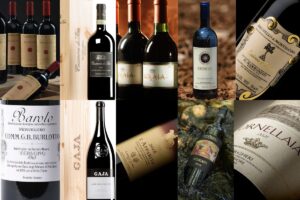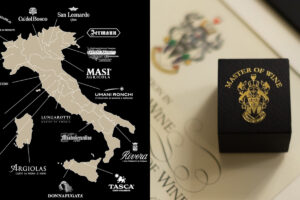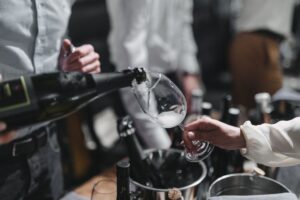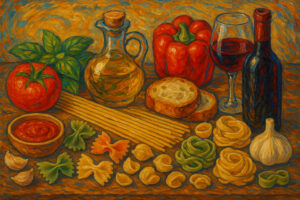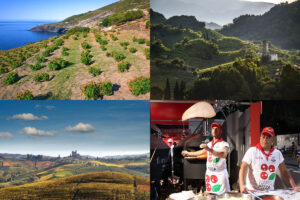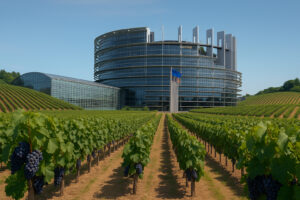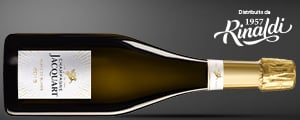Italy has also said “yes”. Italy, one of the global wine powers, will now be able to produce dealcoholized wine, the same as in other countries. It is a “historic” innovation, preceded by a lengthy debate among industry insiders, and made official just before Christmas with the decree signed by the Minister of Agriculture, Francesco Lollobrigida. It is still a “ hot” topic in Italy, between supporters and opponents, though it is definitely a turning point that many are expecting will open up to producing new products as well as aligning with market trends that are more and more sensitive to health issues. The question arises, does dealcoholized rhyme with sustainability and health? The founder of Slow Food and the concept of “good, fair and clean”, a phrase with universal value and boundaries that applies to both food and wine, Carlo Petrini, also spoke on the topic. Petrini reiterated the importance of values such as knowledge and moderation, as well as not demonizing a centuries-old product like wine, rich in history and culture, but distancing certain superficial judgments. “This was a necessary measure, as the production of dealcoholized wine has already been regulated in many Nations and is carving out important spaces for itself in trade fairs. It therefore seems right to me that Italy has opened up to this practice, because, otherwise, we would have been subjected to a sort of unfair competition. There is no doubt, however, that from a strictly gustatory point of view, these wines are very different from those on the market today, and their distribution will absolutely depend on the favor they encounter in the consumer’s perception. Alcohol is an essential element in the taste and pleasantness of wine”. The founder of the “Chiocciola” also warned of a risk to be avoided, namely “to compensate for the absence of alcohol, one tries to achieve the organoleptic sensations of classic wine by adding aromas, sugars or other additives that can be harmful to health. We must not overlook that the decree also regulates “partially dealcoholized” wines, at an alcohol content less than 8.5-9%, meaning that wine that is not entirely alcohol-free risking, especially among young people, imprudent consumption”. The chapter on grapes to be used for dealcoholized wines is considered a “complex” aspect. Petrini says that “many producers in favor argue that it will help some vineyards at the risk of uprooting, to survive and therefore keep fragile territories alive. However, I fear, that since in Italy it is not possible to dealcoholize Protected Designation of Origin (PDO) and Protected Geographical Indication (PGI) wines, to produce this type of wine, we will draw from low-quality and high-yield wine-growing areas such as those in the plains. There is also an environmental aspect to take into consideration. One of the production processes used is reverse osmosis (through a membrane, the aromatic and phenolic compounds are filtered before removing the alcohol by distillation and subsequently reintegrated). This process requires a lot of energy, in a period in which we are trying to limit the carbon footprint of wine production, which is already quite high”.
Petrini concluded explaining that“ dealcoholized wines can perhaps represent an option to classic, non-alcoholic drinks for those who for various reasons cannot or must not drink alcohol. On the other hand, to guarantee the continuity of a millenary production with solid roots in many parts of the world, moderation is necessary. For instance, it would be a serious mistake to say (as often is said), superficially that wine is good for your health. Knowledge and moderation are fundamental elements for a correct nutritional education, and a guarantee for responsible pleasure that applies not only to wine consumption”.
Copyright © 2000/2025
Contatti: info@winenews.it
Seguici anche su Twitter: @WineNewsIt
Seguici anche su Facebook: @winenewsit
Questo articolo è tratto dall'archivio di WineNews - Tutti i diritti riservati - Copyright © 2000/2025












